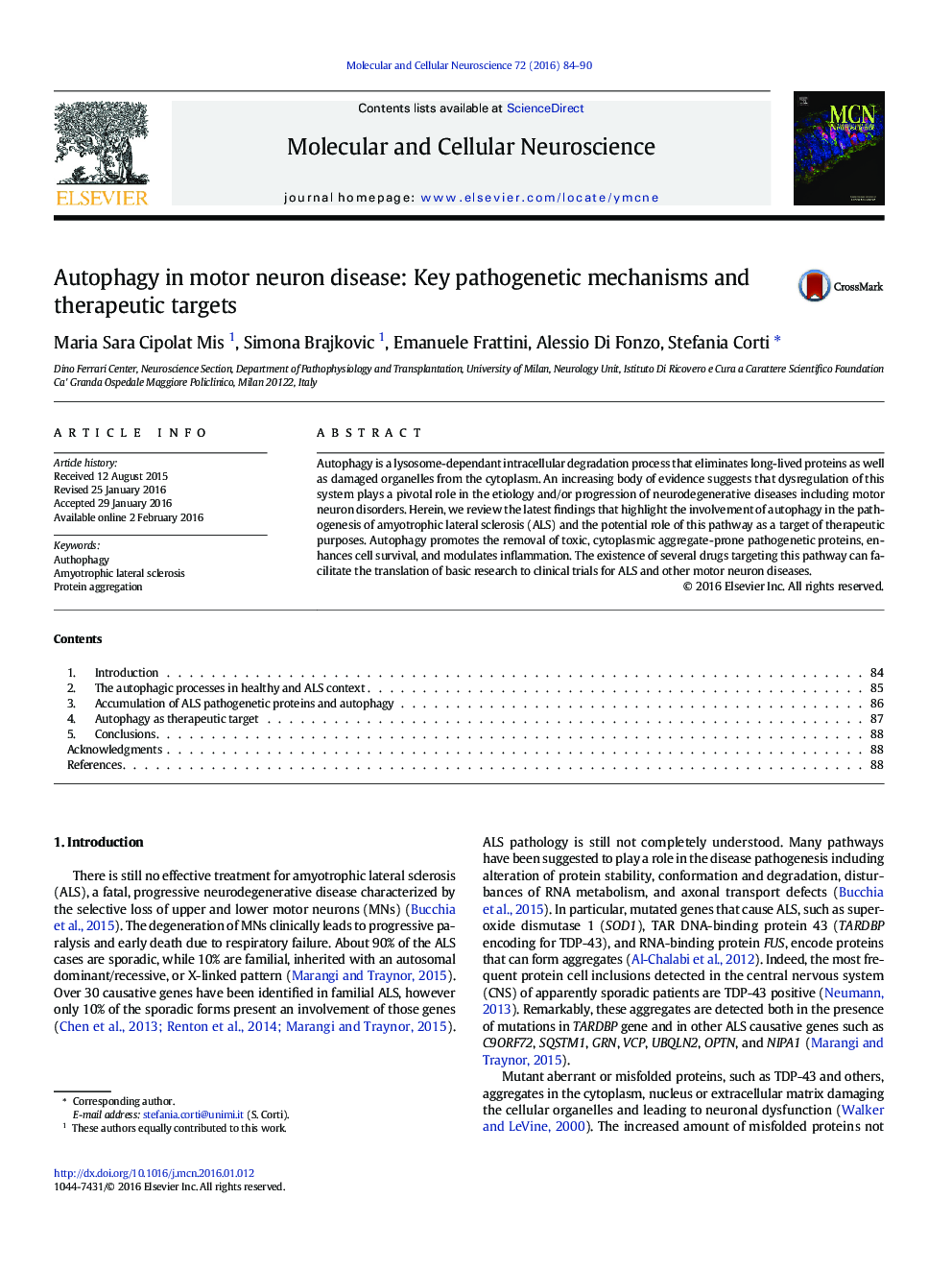| Article ID | Journal | Published Year | Pages | File Type |
|---|---|---|---|---|
| 2198425 | Molecular and Cellular Neuroscience | 2016 | 7 Pages |
•Autophagy dysregulation has a key role in the pathogenesis of motor neuron disorders.•Autophagy represents a potential therapeutic target.•The existence of several drugs targeting autophagy can facilitate the clinical translation.
Autophagy is a lysosome-dependant intracellular degradation process that eliminates long-lived proteins as well as damaged organelles from the cytoplasm. An increasing body of evidence suggests that dysregulation of this system plays a pivotal role in the etiology and/or progression of neurodegenerative diseases including motor neuron disorders. Herein, we review the latest findings that highlight the involvement of autophagy in the pathogenesis of amyotrophic lateral sclerosis (ALS) and the potential role of this pathway as a target of therapeutic purposes. Autophagy promotes the removal of toxic, cytoplasmic aggregate-prone pathogenetic proteins, enhances cell survival, and modulates inflammation. The existence of several drugs targeting this pathway can facilitate the translation of basic research to clinical trials for ALS and other motor neuron diseases.
